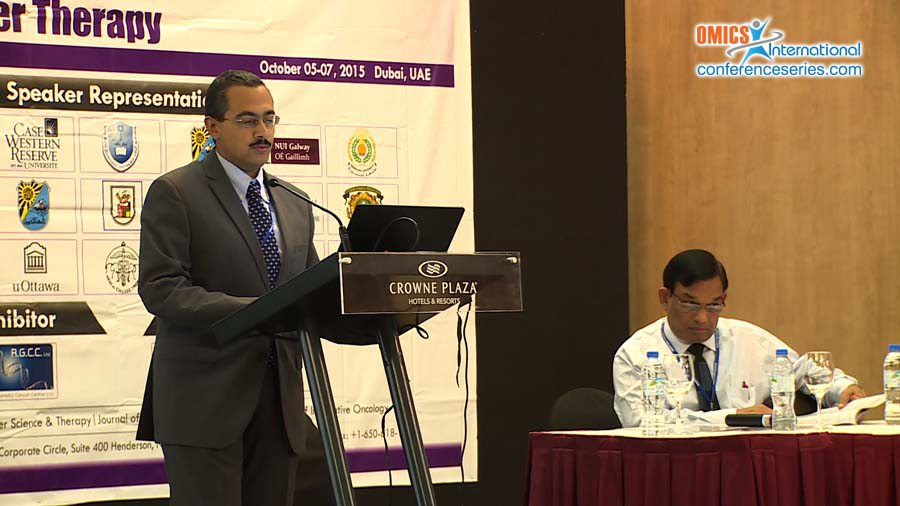
Raafat R Abdel Malek
Cairo University, Egypt
Title: Efficacy and toxicity of sunitinib in metastatic renal cell carcinoma patients in Egypt
Biography
Biography: Raafat R Abdel Malek
Abstract
Renal cell carcinoma (RCC) accounts for 2-3% of all adult cancers. At diagnosis, a third of the patients present with locally advanced or metastatic disease and a third of patients undergoing nephrectomy will eventually develop metastasis. Understanding the molecular pathogenesis of RCC has identified many targets for therapeutic intervention. The rapid development of agents blocking the vascular endothelial growth factor (VEGF) pathway or the mTOR pathway has established molecularly-targeted therapy as the preferred treatment approach for patients with advanced clear cell renal cell carcinoma. Here we present our data regarding the efficacy and toxicity of Sunitinib among 44 patients with metastatic RCC who received sunitinib at an oncology center of Cairo University Hospitals. The median age of the patients was 53 years, 22 (50%) having localized disease at presentation, while the remaining half of the patients presented with metastasis. At a median follow up of 19 months, 9 (21%) patients achieved partial remission, while disease was reported stable in 20 cases (45%) and progressive in 7 (16%). Only 4 (9%) had discontinued therapy due to toxicity. The median overall survival was 23 months (95% CI 15.2-30.9); while progressions free survival was 12 months (95% CI 11.6 - 12.3). The most commonly reported non-hematological grade 3 adverse events included mucositis (15.9%), hand-foot syndrome (13.6%), and fatigue (9%), while the predominant grade 3 or 4 laboratory abnormalities were neutropenia (6.8%) followed by anemia in 4.5% of patients. Our toxicity profile is quite different from the western literature, where diarrhea was the dominant adverse event 61%, while hypertension 12% and fatigue 11% were the most frequent grade 3 non hematological toxicity. Neutropenia and lymphopenia (16% each) were the most common hematological adverse events encountered. Different toxicity profile were seen in Asian population where the most common adverse events were fatigue (81%), stomatitis (60%), thrombocytopenia (56%), anemia (55%) and hand-foot syndrome (48%). Grade 3 or 4 events were for hand-foot syndrome 16%, thrombocytopenia 16% and stomatitis 10%. In conclusion, our efficacy data were comparable to the published literature in terms of progression free survival and overall survival while toxicity profile is different from Asian and western countries. However, sunitinib adverse events were manageable and tolerable in most of our patients.
Speaker Presentations
Speaker PDFs
Speaker PPTs Click Here

